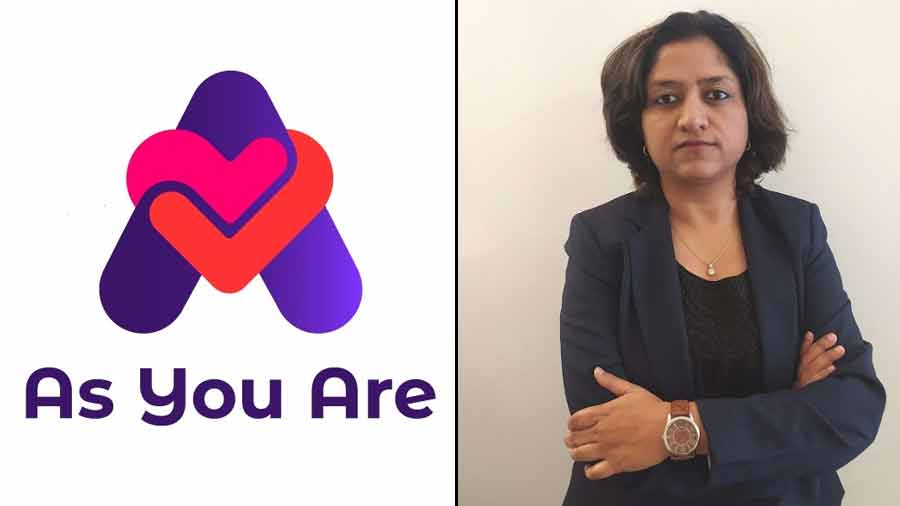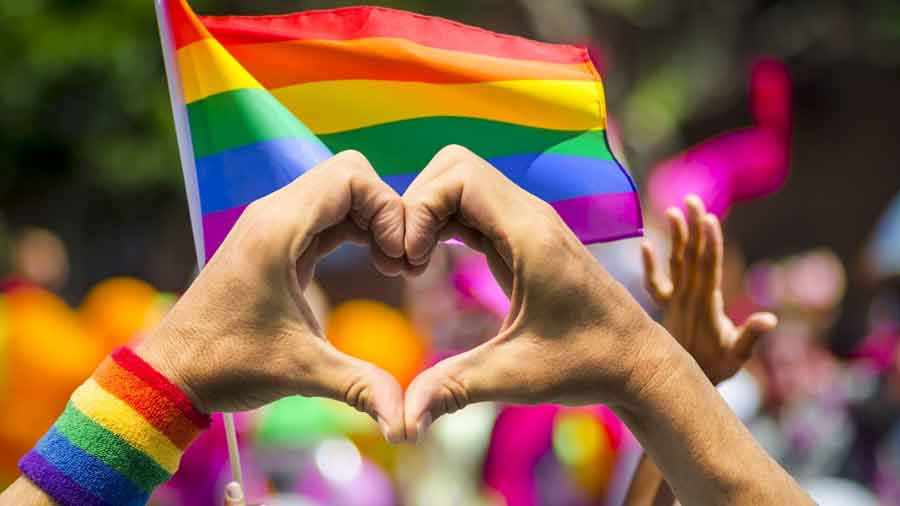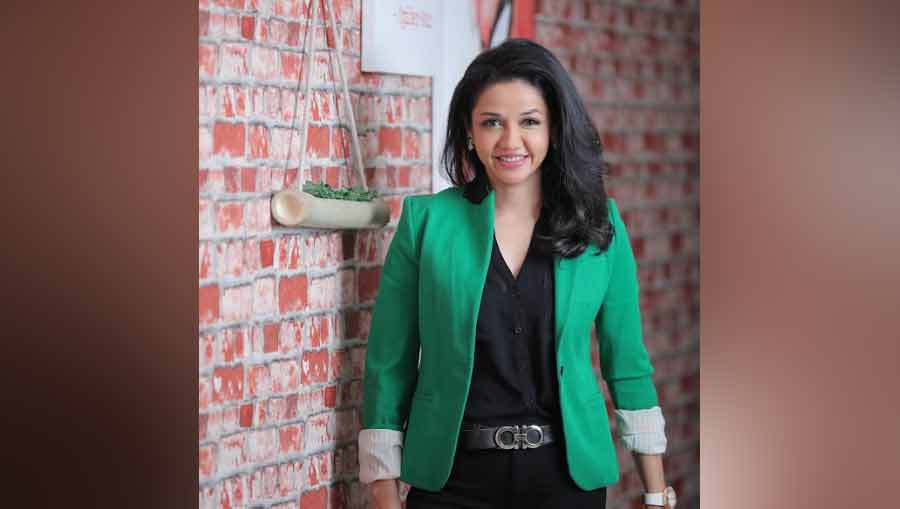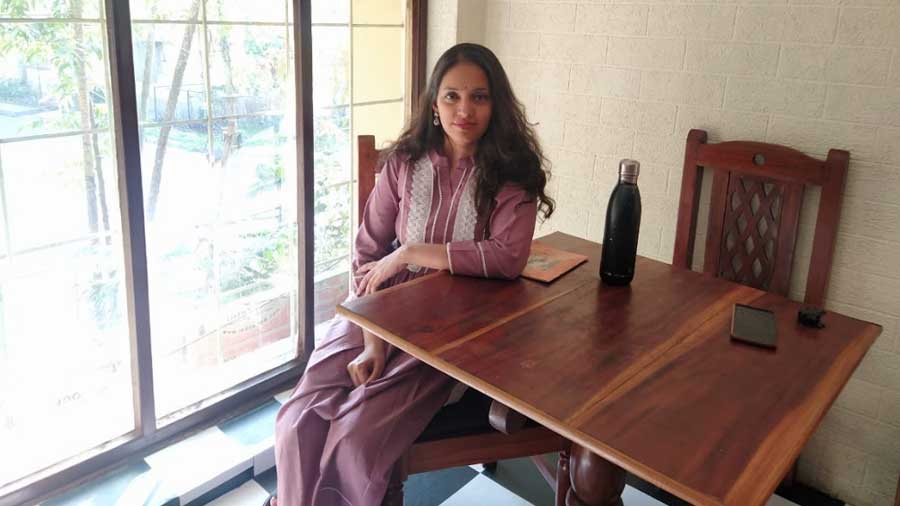Apart from small businesses, home chefs and Zoom calls, if there is any other sector that flourished during the pandemic, then that would definitely have to be dating apps. As the virus pushed us within the confines of our home and disrupted our social lives, more and more people turned to online apps like Bumble, Tinder and Hinge to meet new people and explore the scope of online dating.
However, while these apps were inclusive and queer-friendly, none of them had actually been designed exclusively for people belonging to the queer community. Which is exactly the gap that Chandigarh-based entrepreneur Sunali Aggarwal seeked to fill, when she developed As You Are.

As You Are is India’s first social networking and matchmaking app designed exclusively for the queer community; (R) Sunali Aggarwal
Over a quick Zoom call connecting Kolkata and Chandigarh, My Kolkata caught up with Sunali, who walked us through her entrepreneurial journey.
The vision
“I had always observed this problem with the community where people could not find each other mostly because everybody was closeted. Even with the decriminalisation of Section 377 in 2018, the problem persisted. And that is what triggered this idea of creating a space that is safe for the community to interact with each other,” recollects Sunali.
With the existing apps in the online dating scene, the focus on hypersexuality and hook-ups also proved to be a deterrent for those members of the LGBTQIA+ community who were just looking to meet new people and make connections. As You Are was built specifically to address this need and aimed to create a safe space that would act as both a matchmaking app as well as a social-networking platform where users could engage in conversations with like-minded people.
The process
Hailing from a UX background and owing to her prior experience at startups like Mobikwik, East Village Interactives and Trabug LLP, Sunali had a clear idea of how to go about executing her vision. And then came the pandemic.
This meant that the entire product had to be built remotely – with people working from Delhi, Bangalore and Chennai. While the team is still operating in this manner, as the app continues to grow, and so does the team, Sunali believes that an office space might eventually be on the cards.
“We also faced challenges with hiring. A lot of people that we wanted to hire were outright homophobic. So they didn't want to participate in our journey,” she recalls. Despite all odds however, As You Are was successfully launched in 2020 and currently boasts 25,000 downloads.
Safety first
Right from the start, Sunali was clear about one thing – she would not compromise on the safety of people using the app, which meant structuring a detailed verification process.
“A key differentiator between As You Are and other apps was our process of verification, where people submitted their selfies with some basic information and we manually verified that these were genuine users,” she says. Just by doing this, they were able to screen and block approximately 5,000-6,000 spam profiles. At the same time, Sunali insists that the verification procedure be kept simple for the user. While manual verification continues even now, the team is actively working on mechanisms to make the process more foolproof and effective.
As You Are also does not allow users to pinpoint their location on the app. You can only select the city you are from, thereby protecting your exact address from other users. Sunali also recommends that people interact on the app for a significant amount of time before giving away their numbers. To help encourage this, the app matches people based on their likes and dislikes and other preferences, which are asked during the signup process. For instance, users are asked about their food habits and matched with others having similar choices. According to Sunali, these little details create interest in user profiles and help to make them more attractive.
Special features
“Initially we launched an MVP, which is a minimum viable product. We thought we cannot emphasise everything and build it all in one go. We wanted to incorporate customer feedback…So the initial six months, I think we were just learning from our users about our own product,” reflects Sunali, as she discusses the trajectory of the app. During these first few months of learning, she uncovered various patterns that provided interesting insights into customer behaviour.
One such insight was the fact that not everyone on the app was looking to date. Sunali and team noticed that there was a lot of content consumption on the app, which is when they decided to capitalise on this interest and introduced the Feed feature. And as you might have already guessed, this feature allows people to only read content much like a Facebook or Instagram feed, and not engage with others on the app – a stark divergence from the way in which traditional dating apps operate, where conversations are usually the driving force.
“The idea came from our observation of user behaviour, where we realised that a lot of people sometimes have trouble identifying themselves and their own sexuality… and we realised that we should have something like a feed where people can read content and pose questions,” reflects Sunali, before going on to add that having a feed also enabled the team itself to have access to their users and be able to talk to them. Currently, the Feed feature is a mixed bag of everything from gender and sexuality to lifestyle and even movies!
Another interesting feature in the app is the Community option, where people can set up public or private groups and come together for discussions. “A lot of people might want to talk but are not willing to create groups on WhatsApp, since they might not be comfortable sharing their number. So keeping the community’s preferences in mind, we've created a group chat feature where they can create a group of their friends or people they know without having to expose everyone's numbers,” says Sunali.
The response
As You Are currently has approximately 2,000 active users per month. There has been a steady stream of sign-ups from tier one and tier two cities, and the app has seen a significant number of profiles from Kolkata as well.
So far, the response from users has been positive, with some of them taking to Instagram to share detailed feedback about the app. “A lady wrote to us on Instagram… saying that ‘we are vouching for you and so don't let us down’. I found that very encouraging. People want us to succeed, people want us to do better. And I hope we live up to their expectations,” smiles Sunali.
Plans for the future
A lot of plans are underway now for the team at As You Are. One in particular, aims to expand on the Community feature in the app. Sunali also hopes that with this feature, the team can help people from the queer community to reach out to resources and enable them to have access to any kind of support that they might need. That apart, the app also comes with a job board now, which will continue to be improved in future updates.
When asked to describe As You Are in one word, Sunali says, “I would say it's an ecosystem. We're trying to build a big ecosystem where the community can just be themselves. It can be used as a dating and a non-dating platform – whether it's for dating, whether it's friendship, whether it's for like-mindedness, the objective is to help you meet people that you want to meet.”


